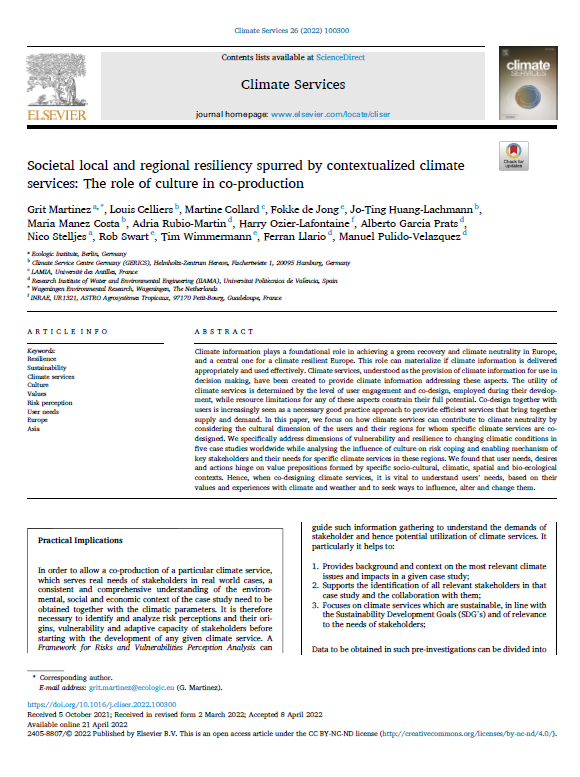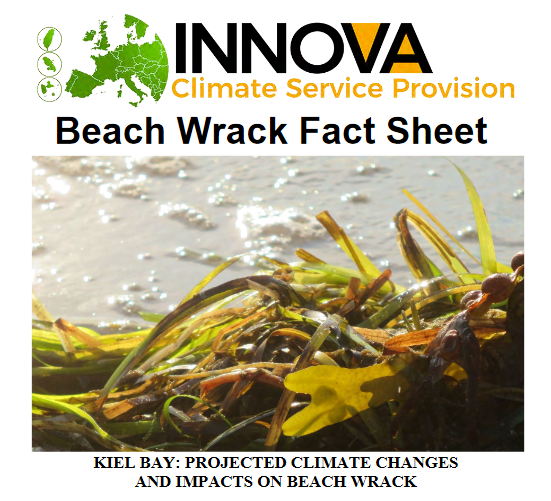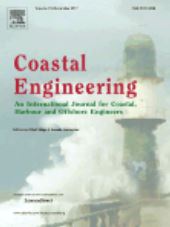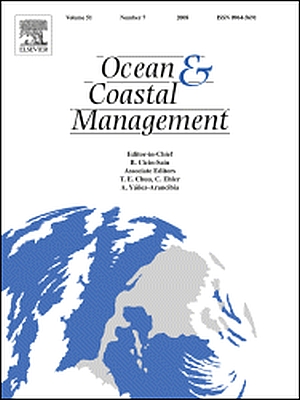The Role of Culture and Informal Aspects for Coastal Disaster Risk Reduction Measures
Empirical Evidence from Northern and Southern Europe, Advances in Climate Change Research
- Publication
- Citation
Martinez., G., Costas, S., Ferreira, O., The role of culture and informal aspects for coastal disaster risk reduction measures: Empirical evidence from northern and southern Europe, Advances in Climate Change Research 11(1), doi: 10.1016/j.accre.2020.11.001
Recent and historic high-impact events have demonstrated significant flood risks to many coastal areas in Europe and across the globe. Understanding the behavior of humans in relation to risk management poses grand challenges for both natural and social sciences and humanities. The study analyzes the cultural aspects of coastal risk management and illustrates path-dependencies of concrete disaster risk reduction measures in relation to local contexts in European coastal regions in Northern and South Western Europe. Dr. Grit Martinez from Ecologic Institute co-authored the journal article.
It adopts a comparative approach by targeting risk perception and risk management related to coastal floods and erosion, induced by storms and sea level rise, in two contrasting coastal areas: German coastal state Schleswig-Holstein at the Baltic Sea (especially the communities Eckernförde and Timmendorfer Strand) and the Portuguese barrier island system of Ria Formosa (especially the community of Faro Beach). Both regions are very low lying with only a few meters above sea level and exposed to similar hazards such as erosion and floods induced by coastal storms, and while they are both attractive touristic destinations, they are culturally, socio-economically and politically very different. The geographical and the socio-cultural contexts of the case study regions are assessed first using an explorative approach, followed by an analysis of the relevance of cultural aspects for the implementation of disaster risk reduction measures. The study addresses both first responders (city authorities, citizens) and scholars. It is found that the choice of risk reduction measures hinges on the values underlying people’s perspectives on the desired outcomes of specific measures, and that the role of identity and meaning making are still undervalued in decision-making processes. It concludes that subjective capacities formed by cultural identities, knowledge, trust coupled with a variety of factors of socio-economic and political texture are important to understand local decision-making processes. The authors found that lively 'culture of risk memory', 'trust in scientific information and community' as well as decision-making of coastal authorities coupled with inclusiveness and participation of communities in formulating and implementing disaster risk reduction measures are prerequisites for successful collaboration and in turn execution of disaster risk reduction measures.








